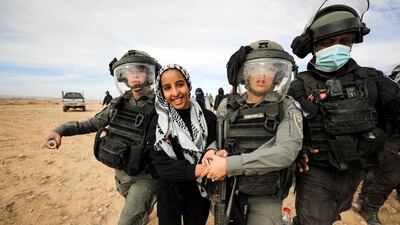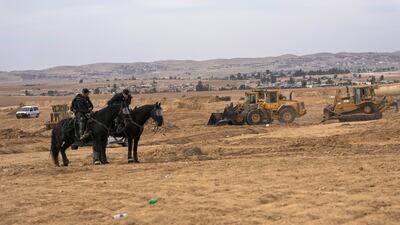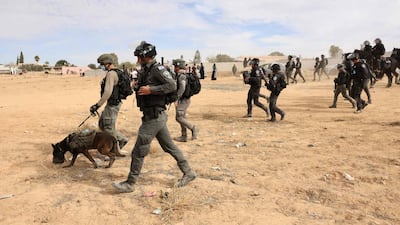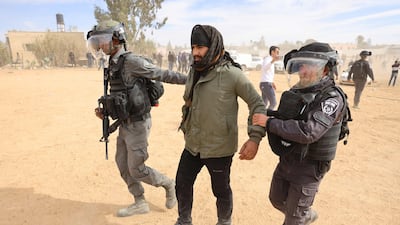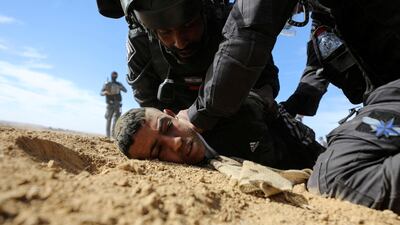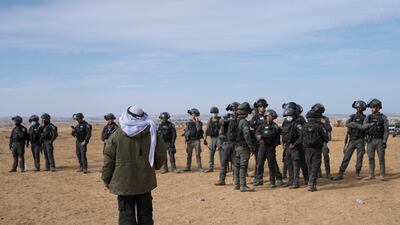Israel halted a tree-planting campaign on Wednesday after protests rocked the Negev desert, with Bedouin residents rallying against the project on disputed lands.
The demonstrations exposed deep divisions within the ruling coalition, a fragile alliance made up of eight parties from across the political spectrum.
After days of wrangling, the government agreed to suspend the project on Wednesday, Israeli media reported, and to launch negotiations.
The tree planting was met with protest as it got under way on Monday, in an area where Bedouin residents claim ownership. The Israeli state says it is public land.
At least 16 people were arrested for throwing stones and other offences, police said on Wednesday. Five officers sustained minor injuries.
Dust filled the air as mounted officers and others in riot gear advanced on protesters, near the village of Sawe Al Atrash.
Roads were also shut for the initial land-levelling work to go ahead, preventing access to villages, according to Adalah, an Israeli organisation for Arab rights.
“Everyone living there, those who protest and those who don’t, including the kids coming back from school, became hostages to this closed area,” said Suhad Bishara, who heads Adalah’s land and planning unit.
The protests in the sparsely-populated south thrust the Bedouin community to the top of the political agenda.
The Negev is a key supporter base for Ra’am, the Arab party in the coalition, which threatened to abstain from voting with the government.
“A tree is not more important than a person,” party chief Mansour Abbas said on Monday.
The coalition, led by right-wing Prime Minister Naftali Bennett, commands a one-seat majority in parliament.

The centrist foreign minister, Yair Lapid, called for a halt to the project. Tree planting in the Negev was also paused in 2020, during the premiership of Benjamin Netanyahu.
Israel’s Bedouin minority has claimed ownership in the Negev for decades, while consecutive administrations have been unable to find a lasting resolution to the issue.
Many residents lack direct access to water and electricity, because they live in villages which the Israeli state has not formally recognised.
Israeli authorities have repeatedly pressed residents to leave their homes and move to towns.
Mr Abbas, representing the first Arab party in government, had pledged to improve the lives of the Bedouin community.
But seven months since the coalition took office, there are few tangible changes to daily life in the Negev.
“The way things are happening now, it doesn’t look like there is an attempt to change the policy, vis-a-vis the Bedouin citizens,” said Ms Bishara.
